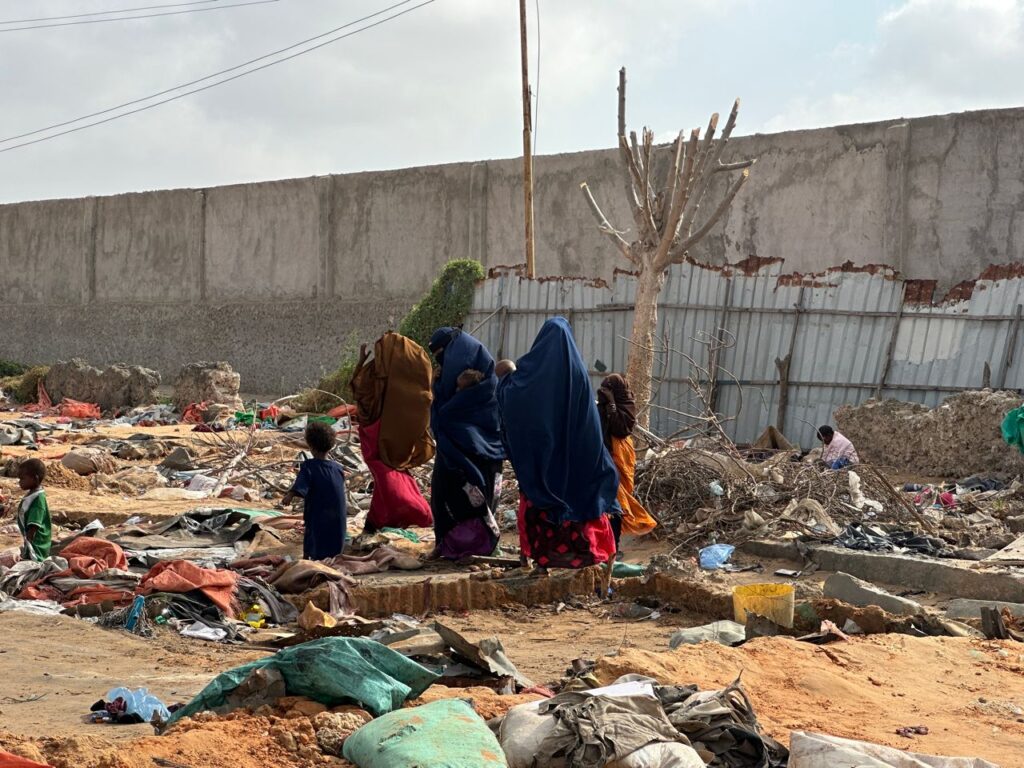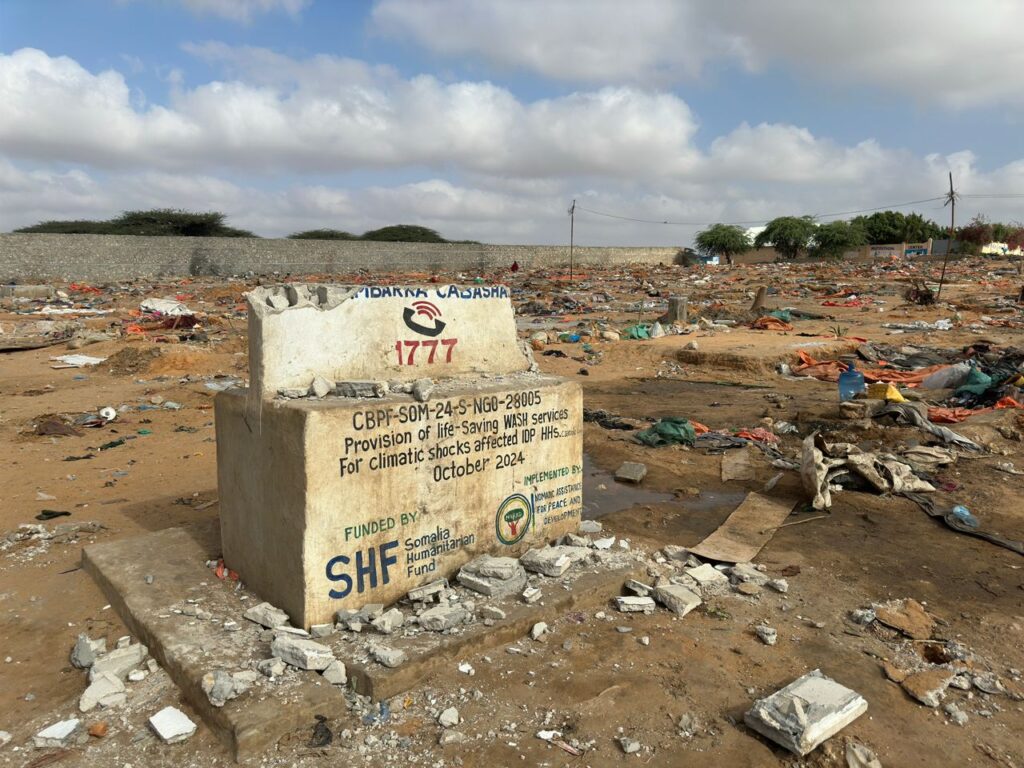Overview of the Crisis

According to the 2025 Humanitarian Needs and Response Plan (HNRP), Somalia experienced slight improvements in its humanitarian situation in 2024 compared to previous years. This progress followed a period marked by a devastating drought (2020–2023) and severe flooding in late 2023. These improvements disrupted the previously rising trend of climate-induced shocks leading to internal displacement.
For the first time in years, conflict-related insecurity became the primary driver of internal displacement in Somalia, accounting for 52% of cases. This shift was largely due to escalating inter-clan fighting.


Evictions and Displacements in Banadir
Displacement continues to be a major issue, with 467,915 individuals newly displaced since January 2024 due to conflict, insecurity, drought, and flooding. Banadir, which hosts the largest number of internally displaced persons (IDPs), is experiencing tremendous pressure on its resources. Since the start of 2024, 60% of the 197,000 reported evictions have occurred in Banadir, often leading to the destruction of humanitarian infrastructure, including water and sanitation systems.
The needs of the internally displaced persons (IDPs) in Somalia remain significant. Food assistance is the most critical, required by 66% of IDPs. Among new arrivals, 31% need access to drinking water, 2% require water for washing, and 1% need shelter.
NAPAD’s Response
In response to these challenges, Nomadic Assistance for Peace and Development (NAPAD), with funding from the Somalia Humanitarian Fund (SHF), has initiated critical water, sanitation, and hygiene (WASH) interventions in IDP camps, in Banadir region. These efforts aim to address severe gaps in WASH services exacerbated by a lack of funding, frequent evictions, and worsening drought conditions.
Key Interventions
- NAPAD has constructed pit latrines across 4 IDP camps, ensuring that they are accessible for people living with disabilities (PwDs).
- NAPAD has improved access to clean water through
- The construction of a 5,000-litre water tank and a water kiosk in Canole IDP Camp.
- The installation of a 5,000-litre water tank in Ya-Fitah IDP Camp.
These interventions are directly mitigating the impacts of Somalia’s worsening displacement and drought crises, thereby reducing vulnerabilities to waterborne diseases, among other impacts.
Eviction and Displacement Crisis in IDP Camps in Deynille District

NAPAD is deeply concerned about the recent mass evictions that occurred on December 31, 2024, displacing 1,552 households (approximately 9,312 individuals) from four IDP camps in Deynille district. These forced relocations have left vulnerable families without essential services such as clean water, sanitation, and shelter.
Impact of Evictions:
- Destruction of 18 emergency pit latrines, including those designed for persons with disabilities.
- Disruption of water supply systems, which includes a 5,000-litre water tank and water kiosk in Canole, as well as another 5,000-litre water tank in Ya-Fitah.
Despite community efforts to reinstall some latrines, the majority of displaced families now face extreme vulnerabilities, including inadequate access to food, clean water, medical care, and protection.

CALL TO ACTION
As Somalia navigates its complex humanitarian landscape, NAPAD remains committed to supporting vulnerable populations and restoring hope amidst ongoing challenges. Therefore, NAPAD urgently calls upon all stakeholders, including government authorities, humanitarian actors, and donors, to join us in addressing these critical needs and making a lasting impact among displaced communities in Somalia.
Priorities for the Displaced Communities include:
- Provision of emergency relief support to displaced communities.
- Provision of access to clean water.
- Re-establishment of WASH services that have been disrupted by the evictions.
- Implementation of long-term food security, livelihoods, WASH, and protection strategies to prevent future displacements and uphold the dignity and rights of internally displaced persons (IDPs).
